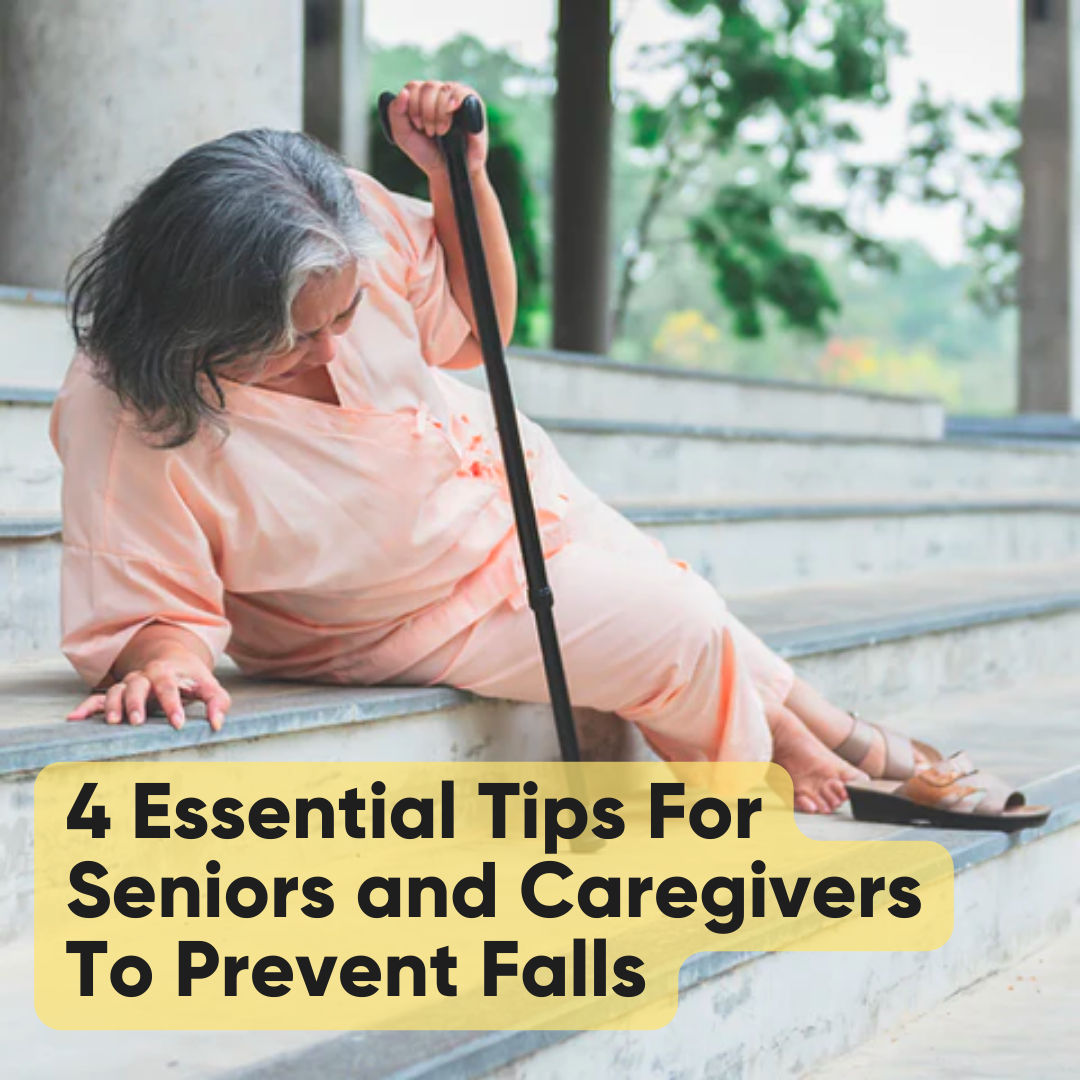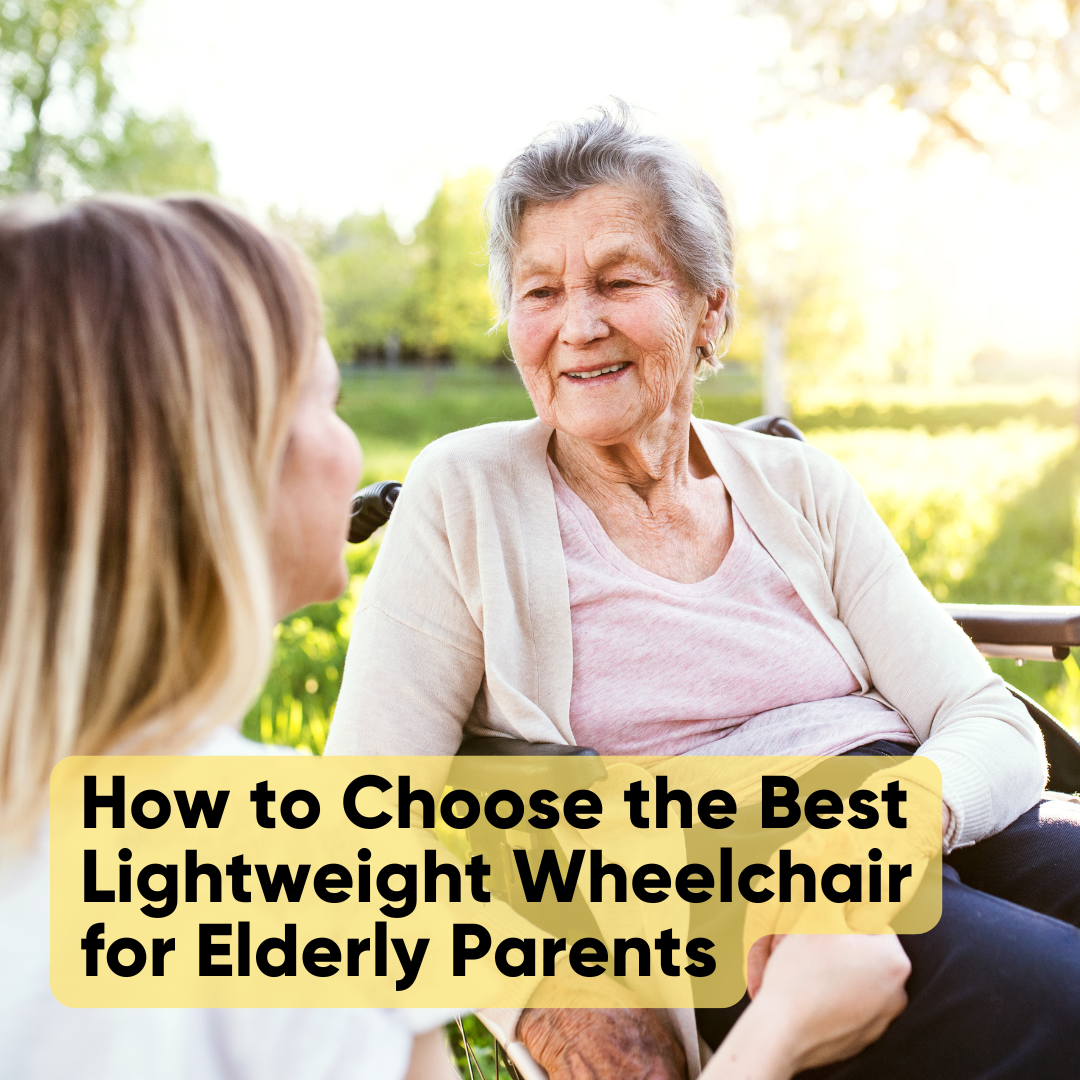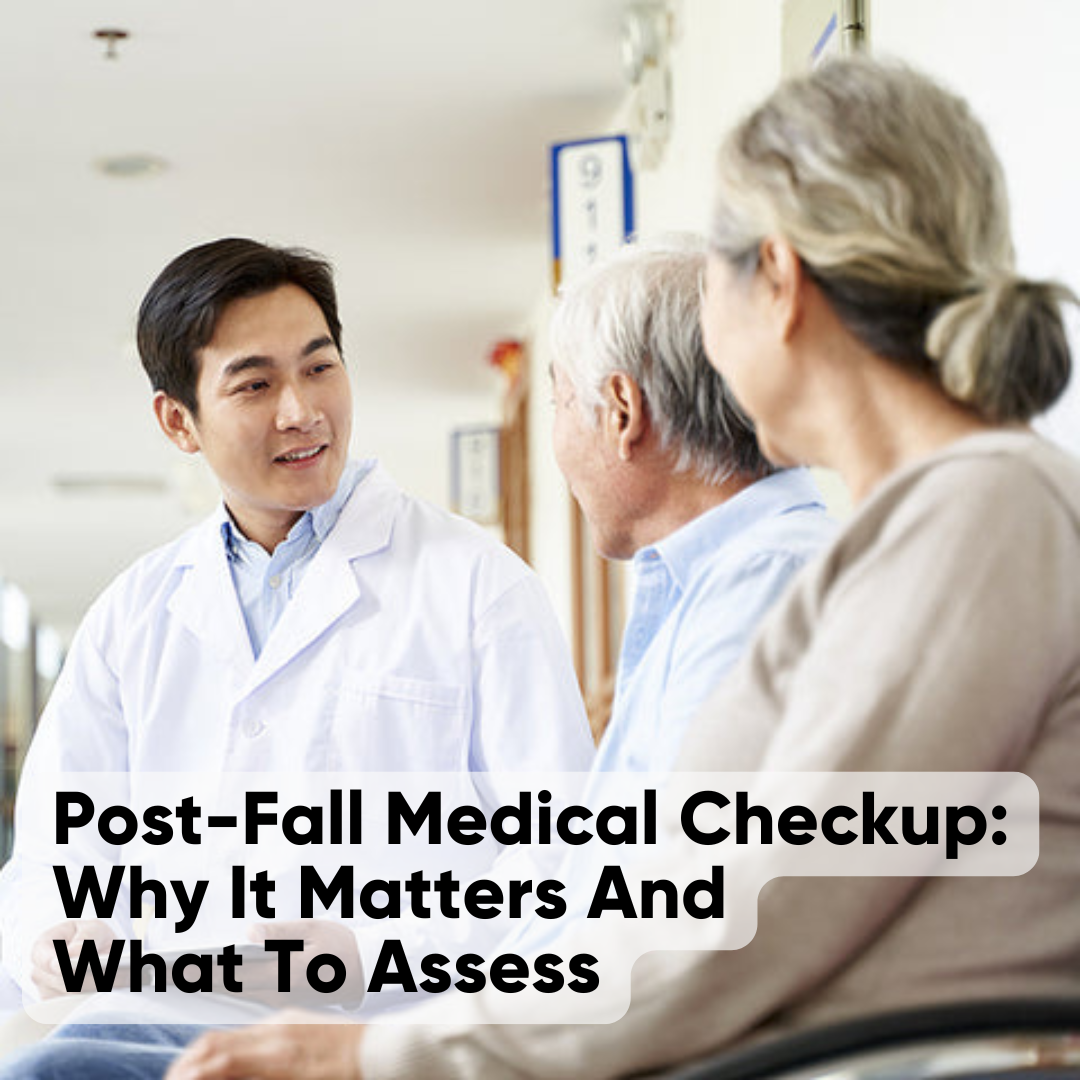Free SG local shipping for orders over $150. Express shipping options also available.
Menu
-
- Bestsellers
-
Mobility
-
Bathroom
-
Bedroom
-
Daily Living
-
About Us
-
- +65-8657-1657
- Contact Us
- Testimonials
- Product Reviews
- FAQs
- Login

Free SG local shipping for orders over $150. Express shipping options also available.
Add description, images, menus and links to your mega menu
A column with no settings can be used as a spacer
Link to your collections, sales and even external links
Add up to five columns
Add description, images, menus and links to your mega menu
A column with no settings can be used as a spacer
Link to your collections, sales and even external links
Add up to five columns
4 Essential Tips For Seniors and Caregivers To Prevent Falls
May 23, 2023 4 min read


Most injuries affecting older people result from falls, but falls do not just occur as people get older. Usually, falls happen due to one or more risk factors, such as medical problems or physical conditions, safety hazards at home, and an unsafe community environment. It is important to eliminate these risk factors and prevent falls since they can cause broken bones, including arms, wrists, and hip fractures. In some cases, falls can even lead to head injuries or long-term disability.
Furthermore, people who fall frequently can develop a fear of falling, which may cause them to have slower reflexes, minimise movement, and cease daily activities. As a consequence of decreased physical activity, the elderly can become weaker, increasing the possibility of them falling. Fortunately, while falls may occur due to risk factors or accidents, they can be prevented.
Read on to discover some essential tips for preventing falls for seniors and caregivers.
1. Strengthen the bones
When bones are fragile, they tend to break more easily. This is a condition called ‘osteoporosis’. By consuming adequate foods rich in calcium daily, one can maintain the strength and resilience of their bones. These include sardines, high-calcium low-fat milk, and even cheese. Getting enough vitamin D from sunlight can also help keep one’s bones strong and healthy.
Vitamin D aids the body in absorbing calcium from the food one eats. This essential nutrient can be found in cod liver oil, eggs, or fatty fish like sardines and salmon. The most effective way to acquire enough vitamin D is to take a walk outside when the sun is up. At least 15 to 30 minutes of sunlight exposure every day already suffices.
Aside from walking, older people should also participate in at least 150 minutes of moderate-intensity aerobic exercises every week to help strengthen their bones and increase their endurance. Simple exercises for seniors like swimming, Pilates, and Tai Chi are known for being effective at strengthening their muscles and improving their balance. Engaging in these exercises at least three to five days a week is highly recommended.
2. Wear non-slip shoes
Sometimes, falls can occur due to wet or slippery floors. As such, it is essential to choose footwear that gives an individual, especially the elderly, a safe footing on the ground, minimising their risk of slipping. Non-slip soles are necessary for a good grip. Floppy slippers, shoes with slick soles, and high heels should be avoided, as they can make one slip, stumble, and fall. To prevent injury among older people, ensure their shoes are comfortable and well-fitted.
3. Eliminate home hazards
If you have an elderly living in your house, ensuring your home environment is risk-free lessens their chances of falling. Take a look around your house to find potential fall hazards. To make sure that your home is safe for your older loved ones to roam around, follow these important steps:
- Eliminate newspapers, boxes, phone cords, and electrical cords from walkways.
- Remove loose rugs from your house or secure them using slip-resistant backing, double-faced tape, or tacks.
- Move magazine racks, plant stands, and magazine racks from high-traffic areas.
- Fix loose wooden floorboards and carpeting immediately.
- Clean spilt liquids, food, or grease right away.
- Store dishes, food, clothing, and other necessities within easy reach.
- Utilise non-slip mats in the shower or bathtub. Also make use of a bath seat, which enables you and your loved ones to sit while showering.
4. Make use of assistive devices
Suppose your older loved one is already having difficulty walking or balancing themself. In that case, their healthcare provider might advise them to use a walking cane or a rollator walker to keep them steady. These devices can help older people maintain their steadiness while walking or standing up and prevent falls. There is a wide variety of other assistive devices that your loved one can use, such as the following:
- Foldable walking frame or walker
- Handrails for both sides of stairways
- Grab bars for the tub or shower
- Non-slip treads
- A toilet seat that is raised or comes with armrests
- A durable plastic seat for the tub or shower
Conclusion
Falls are considered one of the leading causes of injury among older adults, and health conditions and physical changes make falls more likely to occur as we grow older. To keep your elderly loved ones safe and healthy, encourage them to strengthen their bones and wear non-slip footwear, remove hazards from your home, and invest in assistive devices.
If you are searching for the high quality and reliable assistive devices for your elderly loved ones, The Golden Concepts is the provider that you can count on. We offer a diverse selection of assistive devices and other eldercare products to improve safety and independence, such as rollators, walkers, walking frames, lift recliners for the elderly, and homecare nursing beds. Contact us today to find out more.
Leave a comment
Comments will be approved before showing up.
Also in Caregiving

How to Choose the Best Lightweight Wheelchair for Elderly Parents
April 29, 2025 3 min read
Choosing the right wheelchair for an elderly parent can feel overwhelming, especially with so many options available today. A lightweight wheelchair offers greater mobility, ease of transport, and independence - key factors in enhancing your loved one’s quality of life.

